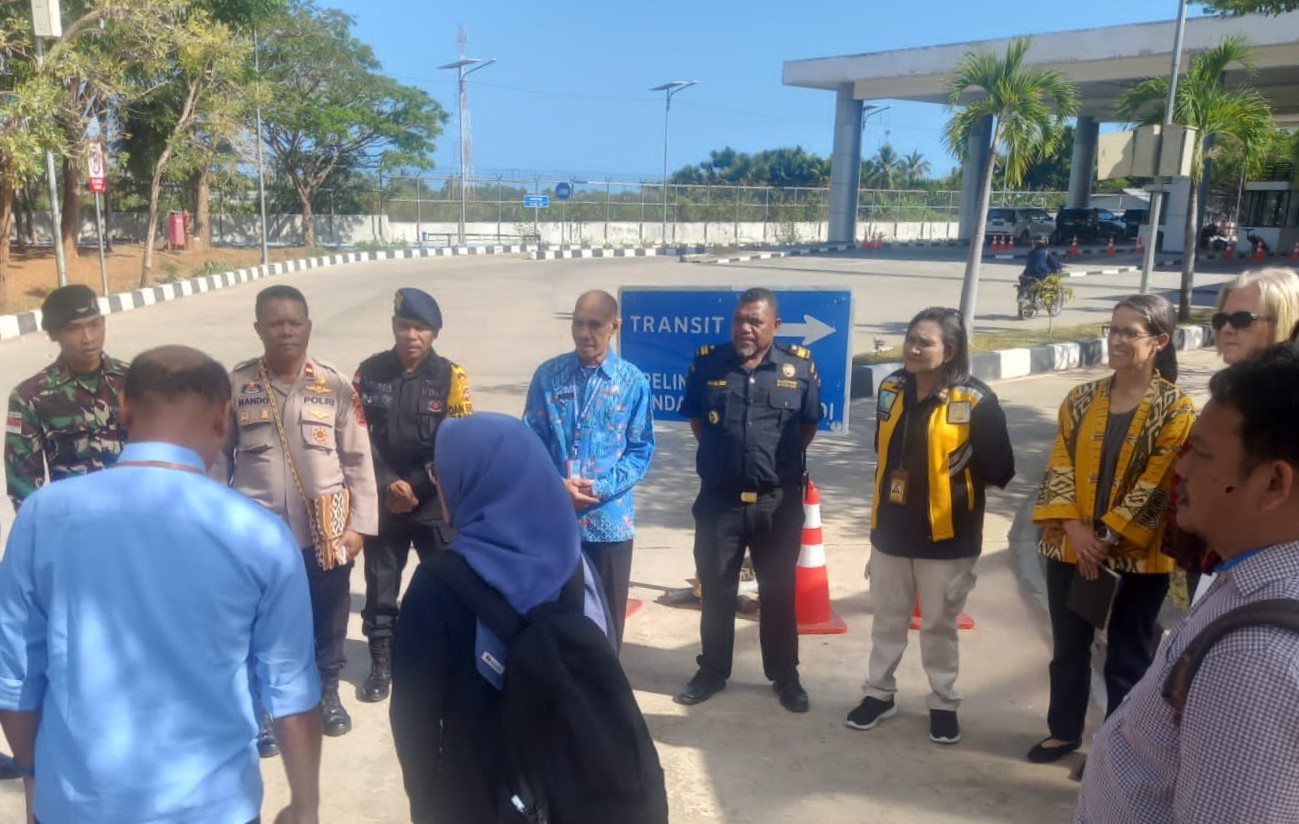Border crossings like Motaain in East Nusa Tenggara, Indonesia, and Batugade in Timor-Leste are where people and goods move between countries. They can be potential hotspots for public health threats such as emerging infectious diseases (EIDs). Ensuring the safety and health of travellers at these Points of Entry (PoE) is vital.
With the recent COVID-19 pandemic, we have learned the importance of keeping our borders safe from health threats. This means we need strong cooperation between countries to prepare and respond to dangerous diseases. Public health preparedness and response capacity at PoE is also a part of International Health Regulation (IHR) core capacities, which refer to the essential capabilities and resources that countries must have in place to prevent, detect, and respond to public health events of international concern.
WHO has joined forces with the Ministries of Health in Indonesia and Timor-Leste to assess and improve public health preparedness and response capacities at Motaain and Batugade ground crossings. This is the first of such effort in WHO South-East Asia Region. It involved participants from Indonesia and Timor-Leste, and observers from India, Nepal and international partners.

Joint assessment and exercise at ground crossing point of entry, 29 August-1 September 2023. Credit: Ministry of Health/Indra Lalu
The initiative took place from 29 August to 1 September 2023, and used the WHO PoE capacity assessment tool. The joint assessment identified strengths and challenges, focusing on public health needs and resources, hazards and vulnerabilities, as well as coordination mechanisms for detecting and responding to health threats. The exercise involved a wide range of activities, from keeping an eye out for new viruses at the PoE to collecting samples, conducting field investigations, assessing risks, reporting findings, and coordinating efforts across the board. This includes cooperation with animal health sectors and border authorities, as well as working closely with neighbouring countries for activities like international contact tracing.
“The joint activity enhances coordination and collaboration between PoE in Indonesia and Timor-Leste to strengthen capacity at ground crossings for health threats. It helps us to understand the PoE capacities and coordination mechanisms as well as to address public health needs and required resources," said Dr Agustinus Taolin, Mayor of Belu District of Indonesia, during the opening session.
Meanwhile, Dr Odete de Silva Viegas, General Director of Health Services at the Ministry of Health in Timor-Leste, said, “This assessment will create a resilient system capable of effectively managing health crises. Our commitment to strengthening ground crossings demonstrates our dedication to the well-being of our communities and the global population.”

Assessment at Motaain ground crossing, 29 August 2023. Credit: Motaain PoE/Dominggos Lenda
The assessment indicated that priority health risks in Motaain include Middle East Respiratory Syndrome Coronavirus, COVID-19, rabies, dengue and malaria. Motaain PoE is well-equipped to provide medical care, transportation for sick travellers, inspect vehicles, ensure safe environment and maintain a vector control programme. The PoE is also prepared for public health emergencies of international concern, complete with contingency plan and measures to disinfect baggage and cargo. Challenges, however, include limited human resources and monitoring travellers who cross borders through informal PoE.

Public Health Emergency Operation Center (PHEOC) of Indonesia engaged in the PoE exercise, 31 August-1 September 2023. Credit: Ministry of Health/Mela
At the end of the assessment, participants committed to collectively strengthening health preparedness at ground crossings, which involves establishing focal points, sharing data on potential hazards, and engaging in regular meetings and collaborative initiatives. These vital discussions will continue at a high-level meeting involving both Indonesia and Timor-Leste.
The joint activity is a big step in the right direction. It brings countries together to identify strengths and weaknesses, working together to keep their communities and the world safe from health threats. This effort sets an example for other PoE in Indonesia and in member states of the WHO South-East Asian Region, such as India and Nepal. By doing this activity regularly, we can reduce the risk of public health emergencies.
This activity is generously supported by the German Government.
Written by Endang Wulandari, National Professional Officer (Epidemiologist), WHO Indonesia
